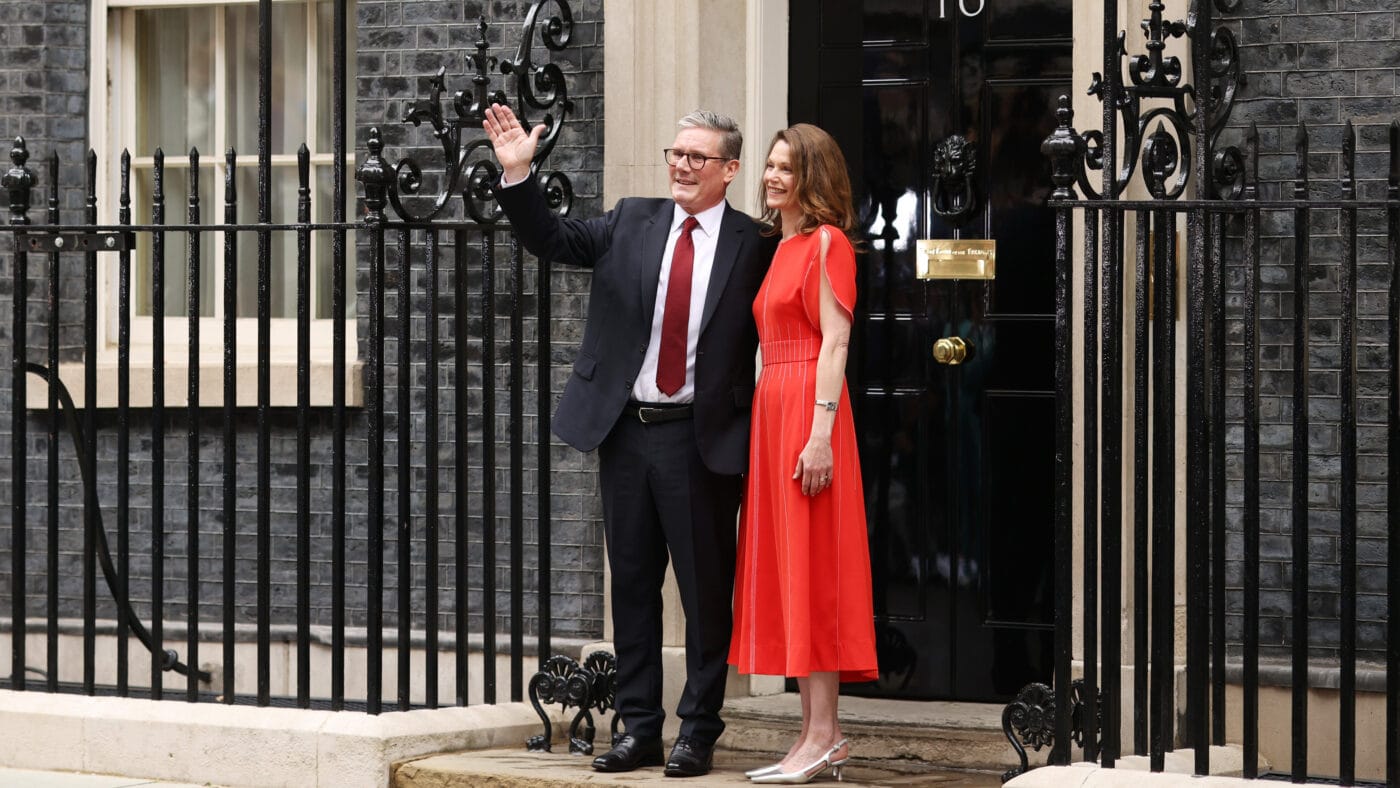If I had to sum up this election result in one phrase, it would be this: ‘You call that a sandcastle? This is a sandcastle!’
Keir Starmer has, like Boris Johnson, stitched together a vast and unwieldy coalition with a vague manifesto full of nice things. His is, of course, a lot bigger – there is no way around the fact that this is an epochal rout for the Conservative Party. But that does mean that it could fall that much harder and faster.
This isn’t just about the really eye-catching stuff, such as shadow ministers getting ejected from Parliament even as their party was swept into power. Electorally, this majority is simply shallow. Overall, seats are the most marginal they have been since 1945 – and with ‘safe’ Tory seats becoming ‘safe’ Labour ones overnight, that word means a lot less than it did yesterday.
Worse still, from Starmer’s point of view, his government is vulnerable on multiple fronts: to the Conservatives in traditional battlegrounds, wherever they are now; to Reform UK across swathes of Northern England and Wales; and to both the Greens and communitarian independents in its heartlands. That’s not counting the possibility of a revived SNP challenge in Scotland.
With Labour MPs sitting on vulnerable majorities and some powerful signals last night that nobody is safe, there is a real danger that Starmer ends up lapsing into the very same do-nothing defensive crouch which so very nearly destroyed the Tories, buying off his base with spiteful gestures in the vein of VAT on private schools without tackling the fundamentals.
It’s not as if there was much evidence of his will to confront the really big challenges facing Britain anyway. As I recently set out on this site, Labour’s housing plan – the one area they really could afford to go big – looks set to amount to little more than smoke and mirrors. There will be no decisive action on new towns, just a new quango; the ‘grey belt’ is almost a mirror opposite of an actual proposal to turbocharge development on ugly sites.
From what I hear, Rachel Reeves at least really gets the urgency on housing and infrastructure. But will all the new Labour MPs in formerly true-blue seats, and jealously protective of fragile majorities, really let her get away with the sort of building blitz Britain desperately needs?
Elsewhere, the picture is even bleaker. It’s progress that the incoming Chancellor talks about ‘living standards’; that sounds like a long-overdue focus on real, per-capita growth. But there is scant evidence that her party is serious about achieving it – not when it is committed to further trying to brute-force social and economic outcomes through measures such as the Race Equality Bill.
Just as with housing, where Labour couldn’t resist the urge to try and regulate for perfection, there is a fundamental tension between growth and control. Real growth is spontaneous, organic, and uneven; it doesn’t necessarily benefit who you want, or happen where you want, on the timescale you want.
Starmer hasn’t tried to sell his party or the public on this ugly truth; nor, in fairness, is there much evidence that they would have been prepared to hear it if he’d tried.
We’ll have a good idea in just a couple of weeks whether or not this government has made a serious go of its bold but airy promises. Given the time lag on things such as housing and construction, anything that isn’t in the first King’s Speech almost certainly won’t have fed through to the country in time for an election in 2028 or 2029.
That’s just the tip of the iceberg, too. Without sustained growth to generate revenues, Labour is going to have to start making hard decisions on spending – there’s only so long you can simulate the dividends of prosperity by reviving PFI, which seems to be Plan A. Local authorities and universities are going to start needing bailouts. Then there’s Starmer’s decision to run to Rishi Sunak’s right on immigration – how is his party possibly going to live up to any of that?
But if it doesn’t, the next election could see a government which has broken its promises on all the big items defending the most fragile collection of majorities since the war on four different fronts at once. That could get very ugly, very fast.
Click here to subscribe to our daily briefing – the best pieces from CapX and across the web.
CapX depends on the generosity of its readers. If you value what we do, please consider making a donation.


